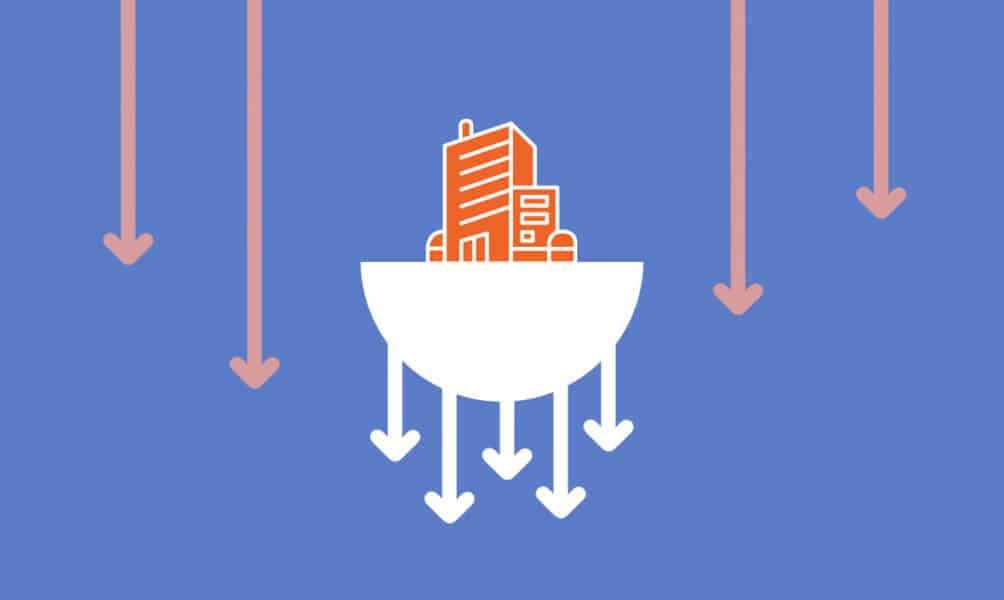If you’re starting a business, you may be considering forming a limited liability company (LLC). An LLC has many benefits including liabilityprote ...
A Guide to Buying a Property as an LLC
Written by: Carolyn Young
Carolyn Young has over 25 years of experience in business in various roles, including bank management, marketing management, and business education.
Published on December 10, 2021
Updated on January 12, 2023

Can a limited liability corporation (LLC) buy a house or other property? Yes indeed! An LLC is its own entity and can own property and other assets, as long as it’s allowed by your Articles of Organization.
An LLC is a business entity that offers liability protection for owners, as well as pass-through taxation, much like a sole proprietorship.
Benefits of Buying a Property as an LLC
- If you have an existing business, buying a home with your LLC can add value to your company. If you’re buying a rental property, you’ll be adding income to your business.
- In some states, putting property in your LLC can result in a tax exemption.
- An LLC provides pass-through taxation, offering an advantage over buying your property as a corporation. With a corporation, profits are taxed at the current rate for corporations (21% as of early 2022), which is significantly lower than the typical individual taxpayer rate. But keep in mind, C Corp shareholders, which includes members, must also pay taxes on their distributions (but not self-employment taxes). Thus, the C Corp is subject to what is sometimes referred to as double taxation. With an LLC, business income “passes through” the company to the members, and profits and losses are reported on their individual tax returns. The LLC itself is not taxed, which simplifies the process for members. Also, losses and operating costs of the business can be deducted personally by the members. Taxes are paid at the members’ personal tax rates, though the owners may also have to pay self-employment taxes.
- You have greater privacy if the property is owned by your LLC. People will be unable to find your name in property records since the property will not be in your name, but in the name of the LLC.
- Your home is protected as an asset. If you are sued for something related to property ownership, the personal liability protection of your LLC will protect the home. This is appealing for real estate investors who can limit their personal risk from rental properties.
- It makes it easier to invest in real estate with partners. You can start as a single-member LLC and then later add other investors as members by selling them shares of your LLC.
Disadvantages of Buying a Property as an LLC
- There are costs associated with forming an LLC. The fees for filing your Articles of Organization vary by state, from $70 all the way to $500. In most states, you also have to file annual reports, which require another fee.
- It may be more difficult for you to get financing for the property. Some types of financing, such as FHA loans, are only offered to individuals, not companies. This is because the lender knows you’re not personally liable for the debt.
- A financing company may charge a higher interest rate for an LLC over an individual.
- You’re unable to deduct the mortgage interest on your home if it’s owned by an LLC.
- You’ll be commingling business and personal assets, which in some cases can expose you to greater risk of liability.
Funding Your Property as an LLC
First, you should pay for your property, or at least make the down payment, with funds from the LLC, not your personal funds. If you use personal funds, it can cause confusion regarding who owns the property. If the assets of the LLC need to be distributed and there are other members, ownership needs to be clear. Also, if the company is sued, ownership may appear to be in a grey area.
Financing may be difficult if your business does not have a credit history of its own, and you may be charged a higher interest rate. If you are buying property as part of a real estate business, it will not be as difficult. In either case, the lender will probably request your operating agreement.
Can I Transfer My House to an LLC?
Yes, you can transfer your house to an LLC. However, if you have a mortgage on the property, such a transfer would trigger the due-on-sale clause because you are essentially selling your home to the LLC. This means you’d have to pay the entire balance due on your mortgage loan, so you’d likely be forced to take out a new loan in the name of the LLC, which as discussed, can be challenging.
In Closing
Buying a property with an LLC has advantages and disadvantages that you’d be wise to consider before diving in. In most cases, it’s a better option than a corporation because of the pass-through taxation of an LLC, rather than the double taxation of a corporation.
To determine if buying a property as an LLC is right for you, you should speak with a tax advisor and an attorney to be sure you understand all the implications based on your situation. Once you’ve made your decision, forming an LLC is a simple process.
A Guide to Buying a Property as an LLC
- Benefits of Buying a Property as an LLC
- Disadvantages of Buying a Property as an LLC
- Funding Your Property as an LLC
- Can I Transfer My House to an LLC?
- In Closing
Subscribe to Our Newsletter
and gain insider access to cutting-edge business insights and trends.
Featured Resources

4 Disadvantages of Forming an LLC
Published on July 2, 2022
Read Now

3 Tax Benefits of Forming an LLC
Published on June 9, 2022
If you’re starting a business, one of the first decisions to make is the type of business entity to form. A limited liability company (LLC) is ani ...
Read Now

How to Change from a Sole Proprietorship to an LLC
Published on May 30, 2022
If your business is growing, you may be considering changing your sole proprietorship to a limited liability company (LLC). LLCs offer severaladvant ...
Read Now
Comments